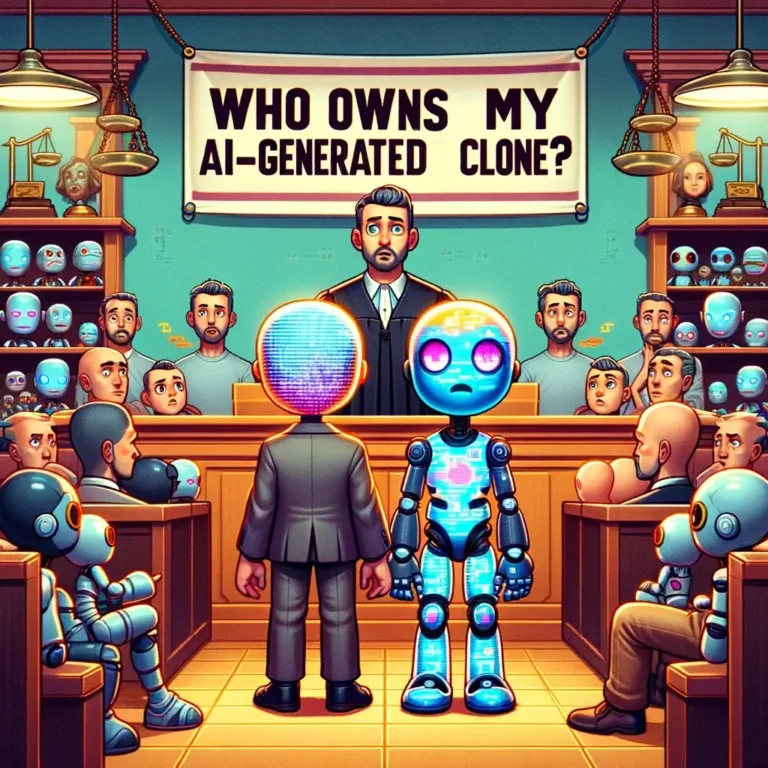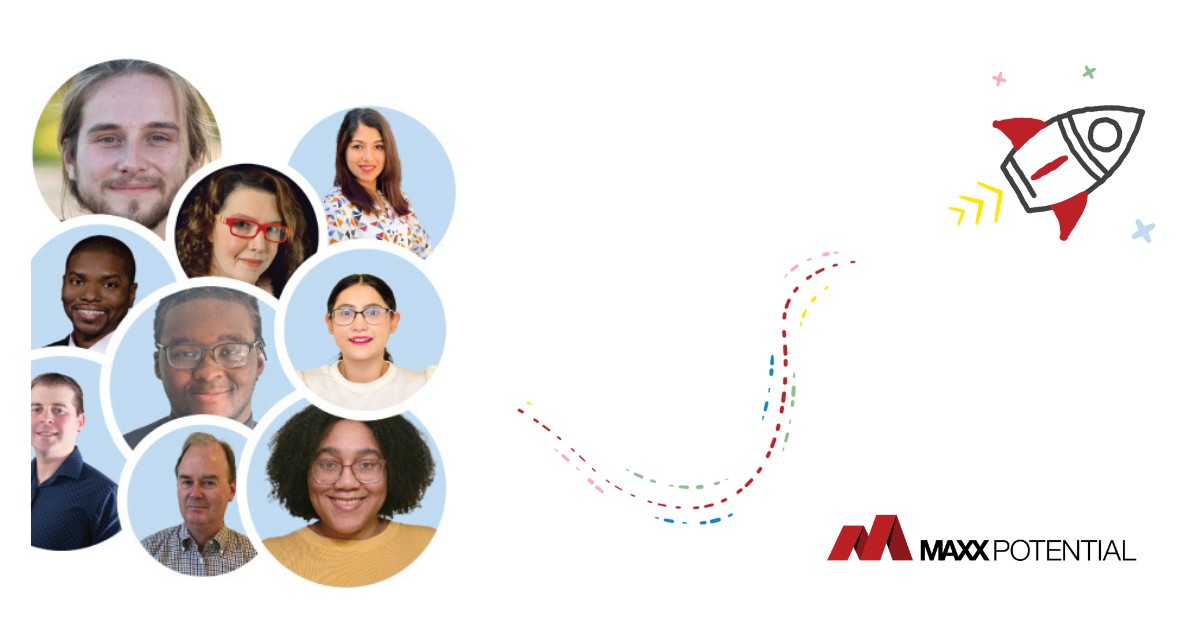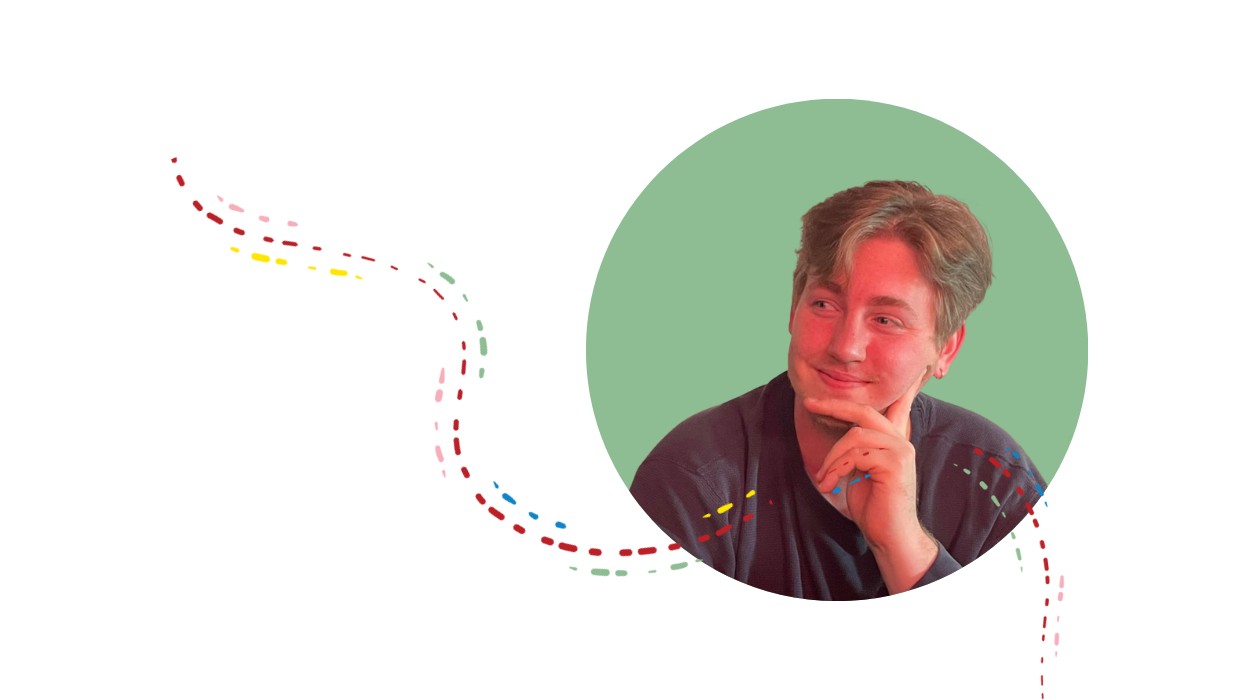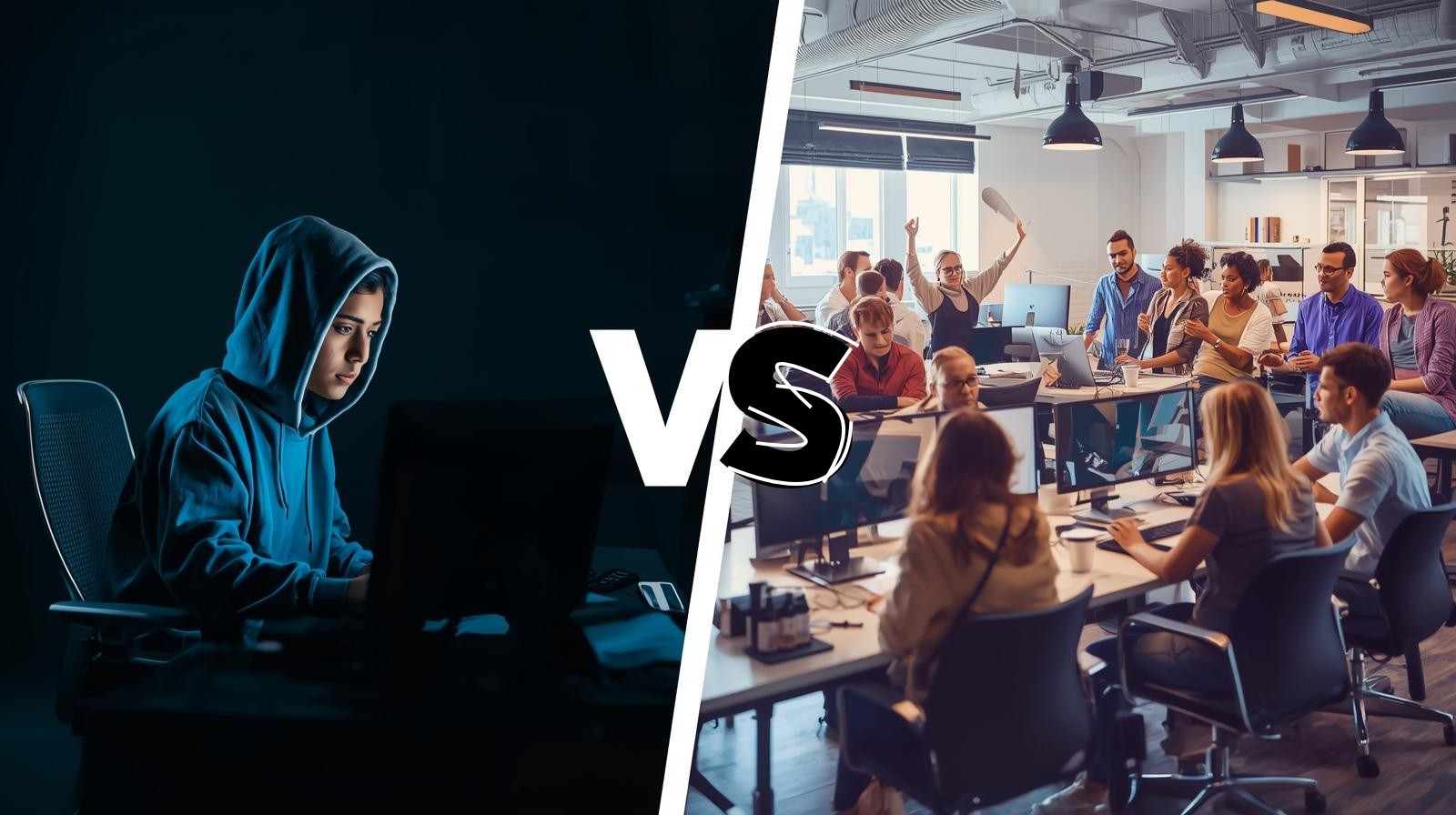Who Owns My AI-Generated Clone?
A Professional's Look at AI Ethics
By Tucker Mahan, Director of Emerging Technology
- Posted:
- Businesses

AI-generated video clones, once a thing of the future, are now here. For the past few months, I’ve been exploring the possibilities of AI-generated clones. I’ve learned how to help my clone have a wider spectrum of emotion and pronounce words correctly. It’s been an adventure.
When I helped my Mother-in-Law clone herself, I ran into security measures with my chosen AI video content creator, HeyGen (Affiliate link). It prompted a question: who owns my AI-generated clone?
I want to say that I own my AI-generated clone, but let’s talk about tech advancements, ethical implications, legal landscape, and the current industry perspective.
Advancements of AI
AI is reshaping the landscape of technology as we know it. We’ve watched the rapid evolution of machine learning algorithms, enabling systems to process vast datasets and learn patterns. This deep learning has empowered AI models to simulate human-like neural networks. They comprehend complex data structures. It’s insane.
The tech advancements we’re seeing in AI includes Natural Language Processing (NLP), which helps machines to understand and generate human language; AI robotics, which means intelligent automation in several industries; and AI-powered recommendation systems, which provides image recognition and smart suggestions.
AI can generate a virtually indistinguishable likenesses of a human from a photograph for AI videos, and this means that it’s easier than ever before to impersonate famous individuals. Advancements in AI means that we need our ethics, legal landscape, and industry perspective to keep up.
What are the Ethical Implications of AI Video Clones?
Copyright misinformation, privacy, misuse – there are a lot of ethical issues to consider. Any innovative technology is going to raise concerns. It’s part of the process.
Now what are the downstream effects? For some areas, like copyright and intellectual property concerns, there’s this conversation about originality and ownership. When AI systems are generating video clones that mimic a person, or are inspired by a person, who holds the copyright to that AI-generated creation? What if an AI-generative clone company went off the wire and started using me as a widely available clone?
On a personal level, who owns the HeyGen clone of me that I made?
HeyGen is clear, stating, “In any case where we find out an individual’s image, likeness or voice is used without their permission, we will take down the relevant content and take appropriate action against the user that engaged in the unauthorized use.”
I like to think that my likeness is mine. I don’t want to see myself saying stuff that I haven’t approved, especially when it’s hard to tell if it’s actually me or not. HeyGen assures users that, “We only use our user’s data to improve our models with the user’s consent and user videos are private by default.” There is also a licensing fee to be able to use the model they built using my video, which can feel weird at first, like “I pay them to use myself in videos?” However, I recognize it is an advanced model that requires resources to run, generate, store, and don’t get too hung up over the cost.
Bigger picture, always check the terms and conditions with the platform you choose to use for AI-generated content, videos, audio, clones. The ownership rights generally may be retained by the user, especially if the AI tool is used for personal purposes.
What about Copyright and AI-Generated Content?
The higher level viewpoint of copyright concerns is these natural language processing models were trained on datasets. They may reproduce copyrighted material without attribution. If AI-generated content uses copyrighted material without citing the source, that’s a lawsuit.
When ChatGPT was originally rolled out, it was much freer in its responses, and as the platform existed longer and started picking up a larger user count, the early adopters noticed changes in how the AI would respond to certain questions.
AI continues to evolve, and we’re starting to see a new content licensing approach. Part of designing a large language model includes deciding what corpus or body of text to use to train the model. Licensing allows these models to utilize content in that corpus, but it also introduces complexities around ownership and copyright of the output. When an AI generates content, such as text, images, or music, it often does so based on the vast amounts of data it was trained on. This raises questions about who holds the copyright to the generated content: the developers of the AI, the owners of the original data used for training, or the users who prompted the AI to generate the content.
The legal landscape for copyright law is still adapting to these challenges. As everyone navigates this new territory, I think it’s crucial for anyone involved in the creation or use of AI generated content to stay informed about the latest legal developments.
What’s the Legal Landscape for AI-Generated Clones?
We’ve already discussed the issues of consent and privacy, and it’s important that we keep talking about the problem of replicating someone’s image or voice without permission. Two main thoughts seem to be in play: regulate AI-generated content with explicit consent or reconsider intellectual property laws. Intellectual property rights, including copyright and trademark considerations, help shape legal frameworks.
As technology advances, let’s keep considering the liability for malicious use or unintended consequences. It’s important that the laws don’t fall behind tech advancements, and yet, it is possible that they will. On a company level, the best thing to do is to establish clear guidelines that balance innovation with the protection of individual rights.
I think this can happen if legal experts, industry stakeholders, and policymakers collaborate on a legal framework that ensures responsible development and use of AI-generated video clone technology, while balancing the interests of content creators, AI developers, and end users.
Here are a few things to keep in mind if you’re using AI-generated video clones:
- Respect Intellectual Property Rights
- Obtain explicit permission to use someone’s likeness
- Pay attention to ongoing legal regulations for AI
- Use best practices when it comes to AI ethics
As the Director of Emerging Technology at MAXX Potential, I’m interested in continuing to explore the possibilities of AI, and we build automated workflows to help your team get more work done. Reach out about your project.
MORE POSTS
By MAXX Potential When Brad decided to build his career in IT, he knew he needed a blueprint. What he didn’t know was that his
Alumni Success Story with Jay Spanos, Support Engineer at Synergy Technical
Unmasking Myths About Tech Careers



